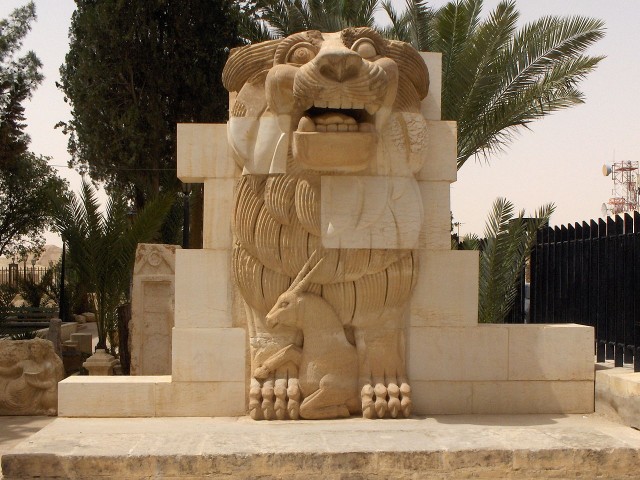
Is it possible to reason with the Islamic State? Perhaps not.
Two theological schools emerged within Sunni Islam in the ninth century. The first, the Mu’tazalites, said that God is reason and justice. The Mu’tazalites held that man’s first duty is to reason because the existence of God is not self-evident. Once man arrives at the existence of God through his reason, he examines the claims of revelation that God has spoken. If anything in revelation appears to go against his reason, he must either bring the revelation into accord with reason or discard it. Through reason, too, man comes to know the difference between what is right and what is wrong, and he must choose what is right through his free will. God is just insofar as He will reward those who do what is right and punish those who do what is wrong.
The second theological school, the Ash’arite school, opposed all of this. God is not reason and justice, the Ash’arites said. Rather, He is pure will and power—unbound by anything, including His own word. Man must abandon reason and submit to the text of revelation, no matter what it says or how unreasonable it may appear. Man’s reason is incapable of knowing the difference between right and wrong. Nothing is right or wrong in and of itself; it is right or wrong only according to what God says.
Does God forbid murder because it is wrong? Or is it wrong because He forbids it? The Mu’tazilite answer was that God forbids it because it is wrong. The Ash’arite answer was that it is wrong only because God forbids it, and God could change his mind and require ritual murder, if He so chose. Also, according to the Ash’arites, God is not required to reward those who obey Him and punish those who disobey. He may reward those who disobey Him and punish those who obey, and no one can gainsay Him. Whatever God does is just—because right is the rule of the stronger, and God is the strongest.
The Mu’tazalites and the Ash’arites also fought over the nature of the Qur’an. The Mu’tazalites said that the Qur’an was created in history and therefore needs to be understood in terms of the linguistic and cultural circumstances in which it was revealed. The Ash’arites claimed that the Qur’an was not created but has existed coeternally with God in heaven. Therefore, the Qur’an is not contingent on the circumstances in which it was revealed, and Arabic is the language of God (which is why all Muslims have Arabic names and must pray in Arabic, though the majority of Muslims in the world do not understand this language). Obviously, the Mu’tazilite understanding of the Qur’an allows for greater breadth of interpretation, while the Ash’arite understanding tends toward literalism (which finds its harshest expression today in Saudi Wahhabism).
The Mu’tazalites had a conception of natural law that allowed man to come to know the difference between right and wrong through his reason’s apprehension of the essences of things. Since the Ash’arites asserted that man could not obtain moral knowledge through his reason, they constructed a bizarre atomistic metaphysics to defend their position and to destroy the possibility of natural law. Basically, man cannot know the nature or essence of things because they have no natures or essences. Everything is constituted by time-space atoms that momentarily come into existence directly through the will of God. Whatever exists is an agglomeration of these atoms specifically configured for a brief moment by an act of God. These same atoms are then annihilated almost simultaneously by another direct act of God’s will. God then reconstitutes reality with an entirely new set of atoms that may be similar to the previous ones or completely different—that depends only upon Him.
Therefore, a Mu’tazilite could know that a horse would remain a horse because it has the nature of the horse. But the Ash’arite could possess no such knowledge, because God might wish to turn the horse into a giraffe, and there is no reason why He could not. In fact, to say that the horse must remain a horse because it has the nature of the horse would be an act of blasphemy for an Ash’arite. It would place a limit on God’s omnipotence.
The atomistic metaphysics of the Ash’arites created a fatal breach between cause and effect in the natural world. Fire does not burn cotton; God does. Gravity does not make the rock fall; God does. To say that a rock falls because of gravity is an act of shirk, blasphemy—assigning a cause to something other than God. In other words, there is no continuous narrative of cause and effect tying these moments together in a comprehensible way. Each thing stands separately as an individual act of God, unrelated to what preceded it or to what follows it.
Anything can come of anything, and nothing necessarily follows. Reality becomes unintelligible….The Mu’tazilite rational theological school was suppressed by force in the second half of the ninth century, and the Ash’arite school became the majority in Sunni Islam. To this day, everything that happens is assigned to the first and only cause, Allah; secondary causes simply do not exist.
Understanding that this teaching became entrenched in the Sunni Muslim world is the key to unlocking such puzzles as why scientific inquiry is nearly dead there; why the Arab world stands near the bottom of every measure of human development; why Spain translates more books in a single year than the entire Arab world has in the past thousand years; why some people in Saudi Arabia still refuse to believe man has been to the moon.
Among the fruits of this strain of Islam: the preservation of antiquities; respect for friends of mankind.
